Unlicensed Dispensary Sparks Controversy in Highland Park Amid Legal Disputes

In Highland Park, Michigan, a recent incident has raised questions and concerns among local officials. City Councilman Khursheed Ash-Shafii expressed disbelief and suspicion over the actions of Nar Cannabis, a Michigan-based marijuana company. Despite a July ruling by a judge invalidating the city's recreational cannabis ordinance, Nar Cannabis proceeded to renovate a vacant building into a dispensary.
This development occurred on Victor Street near Woodward Avenue, where Nar Cannabis renovated the building, adding a new parking lot, signage, and lighting. The dispensary has not yet opened, but company representatives were seen distributing T-shirts during the city's Christmas tree lighting event last month, further fueling speculation.
Ash-Shafii is wary of potential underhanded dealings, questioning the rationale behind investing significant funds into a dispensary unlikely to open without proper authorization. He suspects the existence of a "sinister" background agenda, considering the substantial investment involved in such a venture.
Mayor Glenda McDonald declined to comment on the situation, citing ongoing litigation. Likewise, attempts to reach Nar Cannabis for comment were unsuccessful.
This controversy follows a lawsuit filed in May by Highland Park activist Robert Davis. He alleged that the city's ordinance for zoning cannabis businesses violated the Michigan Zoning and Enabling Act, as it lacked approval from the city's Planning Commission. Davis suggested that the ordinance was designed to benefit donors owning property in the designated zones. Wayne County Circuit Judge Susan Hubbard concurred with this assessment, leading to the ordinance's nullification in July.
The Michigan Cannabis Regulatory Agency has not yet approved a license for the disputed dispensary. Consequently, without a valid ordinance, dispensaries are not permitted to operate in Highland Park.
Davis suspects corrupt interactions between city officials and the building's owner, given the ongoing development of the dispensary despite legal prohibitions. He has communicated concerns to the judge and city attorney, urging legal action if the city attempts to authorize the dispensary's operation.
The city's attorney, Anthony Chubb, assured Davis that Highland Park had not sanctioned the dispensary's opening and would take legal steps against Nar Cannabis if they tried to open.
This situation adds to the controversy surrounding Highland Park's cannabis ordinance. Last year, efforts to amend the ordinance to address potential corruption were made. The initial ordinance granted the clerk sole authority to issue licenses, a responsibility typically assigned to a board for accountability. Moreover, the ordinance's zoning included areas beneficial to specific city donors, raising further ethical questions.
Amidst these developments, Ash-Shafii has taken a firm stance against discussing new ordinances until illegal grow operations in the city are addressed. He alleges that police inaction has allowed such operations to thrive in abandoned buildings. Ash-Shafii insists on a public referendum for any future ordinance concerning cannabis in Highland Park.
Ypsilanti Embraces Decriminalization of Psychedelic Plants and Fungi
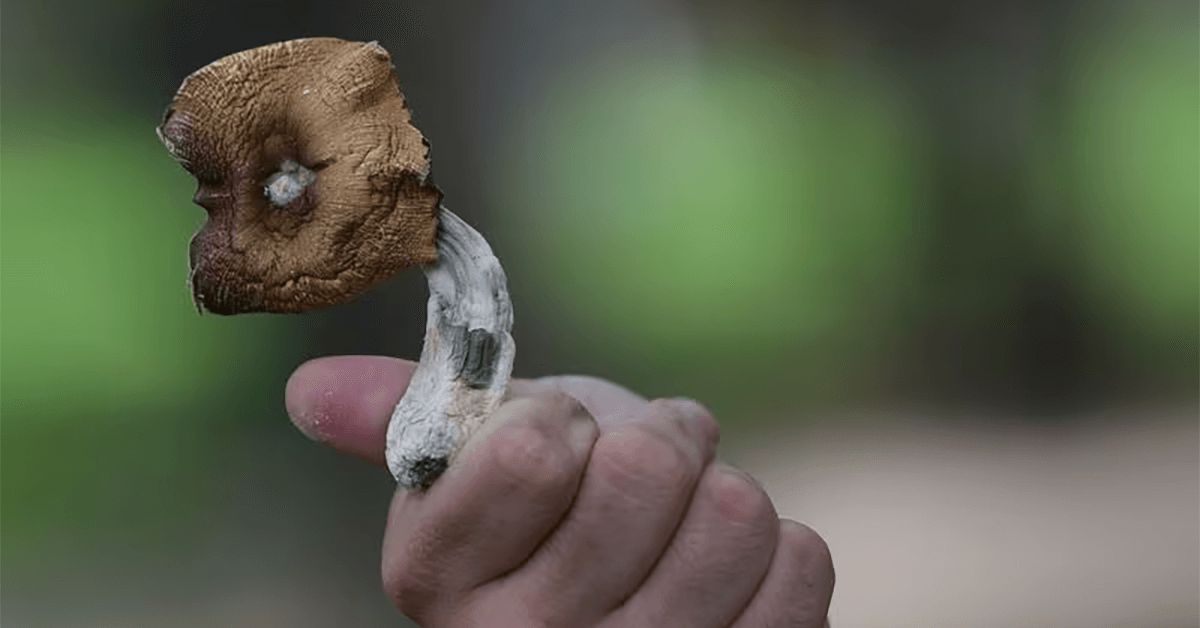
Editorial Note: Although this topic does not directly concern cannabis, it is closely related in terms of policy reform and decriminalization efforts. Given the relevance of these issues to our audience, we believe this news is significant and pertinent to our community.
Ypsilanti, Michigan, has recently aligned with over two dozen cities across the United States by adopting a progressive stance on the personal use of psychedelic plants and fungi, including "magic mushrooms." This landmark decision was unanimously agreed upon by city leaders on Tuesday, January 9th, signaling a shift in local drug policy.
The substances involved in this decriminalization include ayahuasca, ibogaine, mescaline, psilocybin mushrooms, and other plant-based substances known for their hallucinogenic properties. These plants, despite being illegal under state and federal law, have now been de-prioritized in terms of criminal investigation and penalties in Ypsilanti.
Larry Norris, a co-founder of Decriminalize Nature and an advocate for the policy, praised the decision. He emphasized the importance of cognitive liberty and personal spiritual growth, highlighting the resolution's significance in fostering these values.
Ypsilanti follows the steps of other Michigan cities like Detroit, Ferndale, Hazel Park, and Ann Arbor, all of which have previously adopted similar stances on entheogenic plants and fungi. The resolution passed in Ypsilanti states that any activities involving the personal use, growth, and possession of these substances should be the city's lowest law enforcement priority.
Importantly, the resolution also bars the use of city funds or resources for any law enforcement activities related to these plants. This move aligns with the Washtenaw County Prosecutor's Office's existing policy of not prosecuting such cases.
However, the resolution does not permit commercial sales or manufacturing of these substances. It also restricts their possession in schools, prohibits driving under the influence, and addresses the potential for public disturbances.
Former Ann Arbor City Council Member Anne Bannister shared that Ann Arbor, which decriminalized these substances in 2020, has not experienced any negative consequences from this policy.
Advocacy efforts from Decriminalize Nature Michigan and personal testimonies from residents about the therapeutic benefits of psychedelic plants in treating mental health issues played a significant role in this decision. Personal accounts from individuals like Michelle Donaldson highlighted the transformative impact these substances can have, citing benefits in mental health and personal well-being.
Council Member Steve Wilcoxen recognized the historical and therapeutic significance of these plants, acknowledging the numerous studies that support their benefits in treating addiction and other mental health issues.
Furthermore, the resolution was amended to communicate its principles to law enforcement agencies outside city jurisdiction, emphasizing Ypsilanti's commitment to these values.
Ypsilanti's decision is seen as a step towards addressing systemic inequities, particularly those affecting Black people and people of color. Activist Cornelius Williams underscored the importance of municipal-level policy changes in influencing broader state and federal legislation.
With this decision, Ypsilanti becomes one of the 27 communities nationwide to adopt such a progressive approach towards psychedelic plants and fungi, marking a significant moment in the ongoing conversation about drug policy and decriminalization.
Trio of Marijuana Dispensaries Set to Open Near Michigan-Indiana Border
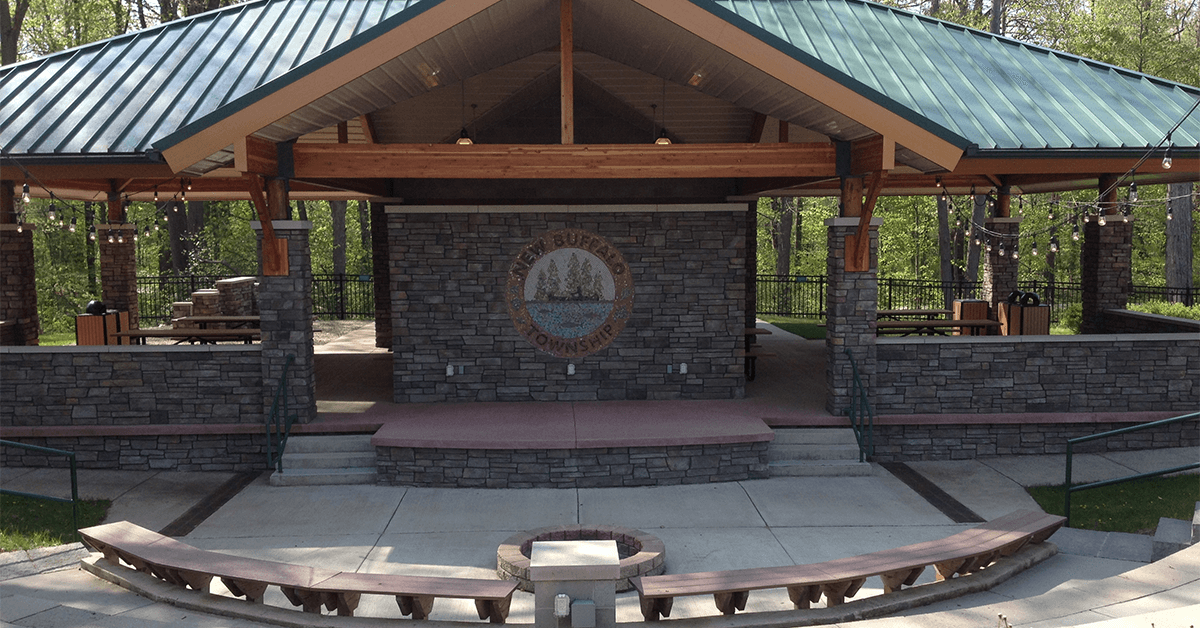
New Buffalo Township, located near the Michigan-Indiana border, is on the verge of significantly expanding its marijuana dispensary presence. In a pivotal decision on Tuesday evening, the township's Planning Commission approved proposals for three new dispensaries along US 12, a key route leading to New Buffalo.
Currently, the region is served by a single dispensary within New Buffalo city limits and another on nearby native land, not under the jurisdiction of the city or township. The initiative to augment the area's dispensary count has been underway for approximately 18 months, with the recent approvals marking a crucial step towards realization.
The first of these new dispensaries, set to be established just past the Michigan-Indiana state line near Michigan City, is spearheaded by Native Leaf LLC. This provisioning center aims to operate daily from 9 a.m. to 9 p.m., staffing five to six employees. The location, currently an unoccupied space, is expected to transform into a bustling center for marijuana retail.
A mere half-mile down the road, Bobeck Real Estate Company plans to open the second dispensary. This new establishment will join their portfolio of dispensaries, which includes Sunset Coast Provisions in Cassopolis. The company representative expressed that this addition is a natural extension of their growing business in the area.
Adjacent to this, Mitten State Engineering is set to renovate an existing building on Grand Avenue into a fully functional dispensary. This facility also plans to operate from 9 a.m. to 9 p.m. and will employ a team of five.
Despite these approvals, the process is not yet finalized. The Tuesday night decision requires further confirmation, and the planning commission members indicated that it might be some time before these dispensaries begin operations. This development represents a significant expansion of marijuana retail options in the region, potentially enhancing accessibility for residents and visitors alike.
Barryton Welcomes M66 Cannabis Co., a Local Market Innovator
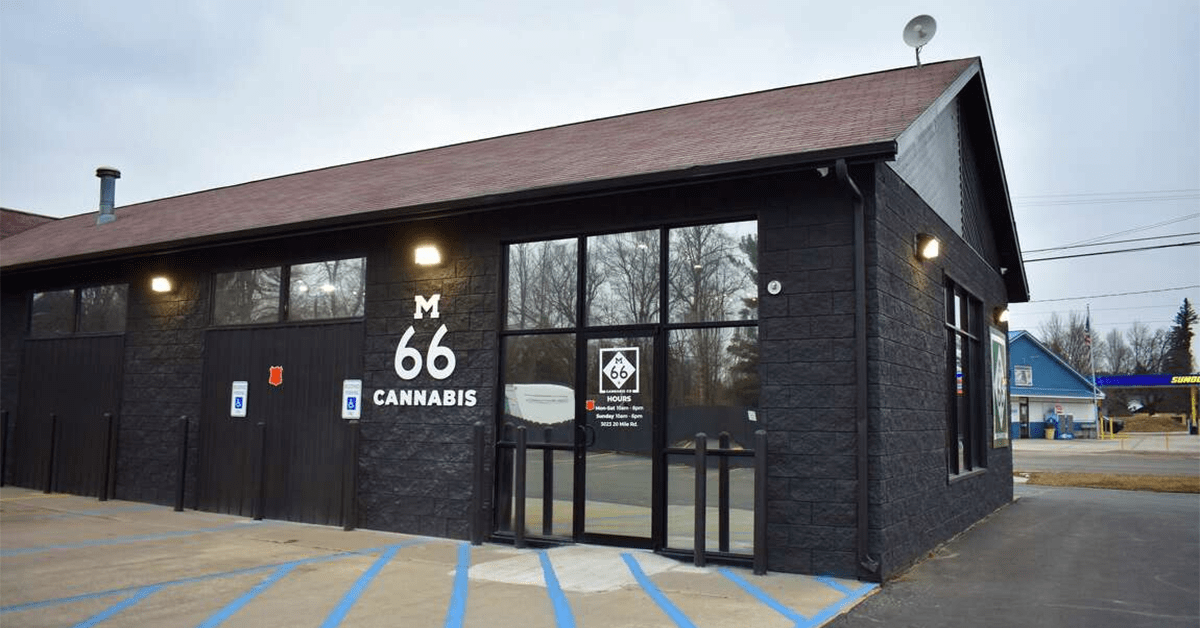
Barryton, Michigan, recently welcomed a new addition to its community with the opening of M66 Cannabis Company, a marijuana dispensary. The grand opening took place on December 29th at their location, 3023 20 Mile Road, which was previously an abandoned car wash. The transformation of this site marks a significant milestone in the company's journey, which began even before 2019.
Grant Nouman, the owner of M66 Cannabis Co., detailed the challenging path to opening the dispensary. The initial focus was on cultivation, but the onset of the pandemic in 2019 and subsequent market shifts in the cannabis industry prompted a pivot to retail. Despite these challenges, Nouman noted the vital support received from the local community.
The dispensary's approach includes a strong commitment to hiring locally, with an emphasis on integrating into the Barryton community. Nouman highlighted the importance of contributing to the local economy and supporting veterans, with the company employing local residents, including a veteran.
M66 Cannabis Co. boasts a comprehensive range of marijuana products, including flowers, edibles, extracts, pre-rolls, tinctures, and branded merchandise. A particular highlight is the 'Speak Easy' hybrid strain, sourced from Fawn River Cultivation Company and featuring a 22% THC content.
The company is dedicated to supporting local businesses, regularly purchasing from nearby growers and cultivators. This local focus was evident during the bustling grand opening, which Nouman described as a testament to the community's anticipation and support.
Significant renovations were undertaken on the former car wash, including the creation of a drive-through pickup lane and secure product storage. Nouman also acknowledged some initial skepticism in the community regarding recreational cannabis licensing but noted the predominantly positive response from locals.
Looking ahead, M66 Cannabis Co. plans to expand its product range, including a CBD line and offerings tailored for pets and athletes. Education is a key focus, with staff trained to advise on products suited for various medical needs.
Michael Messina, the general manager, expressed his enthusiasm for the dispensary's potential impact on Barryton. He emphasized the benefits of cannabis as an alternative to traditional prescription drugs and the positive feedback received from customers.
Nouman outlined ambitious goals for the company, aiming to increase market share and contribute to the local economy by attracting customers from surrounding areas. The company also plans to engage in community events and promote the dispensary throughout West Michigan.
M66 Cannabis Co. is actively involved in the community, participating in local events like the Lilac Festival and Barryton Days. Nouman emphasized the company's commitment to Barryton, expressing gratitude for the support received and the desire to foster strong community relationships.
As M66 Cannabis Co. continues to grow, Messina looks forward to building connections with customers and contributing positively to Barryton's community fabric.
Advocacy Group Urges Howell City Council to Permit Marijuana Businesses
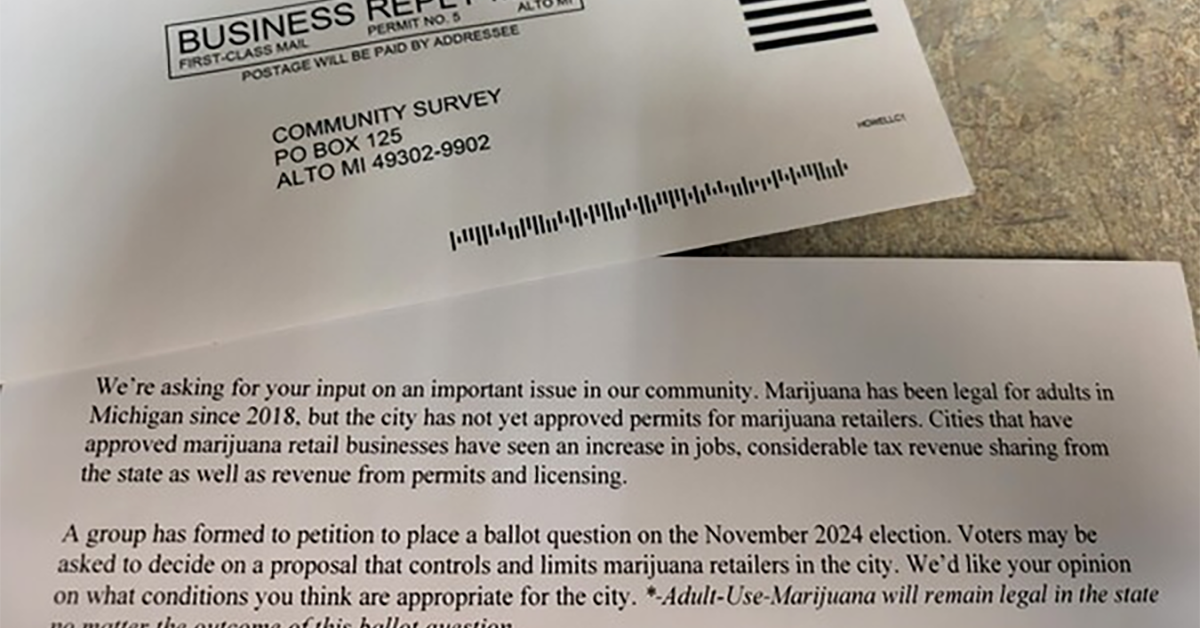
In Howell, Michigan, a significant push is underway to introduce marijuana-related facilities, potentially leading to a ballot question in the November 2024 election. This move challenges the city's current stance, which has been to opt out of permitting such establishments since Michigan legalized medical and adult-use marijuana in 2018.
Recently, Howell's City Council received a letter from Ypsilanti Attorney Anderson Grandstaff. He represents an organization advocating for a ballot initiative to overturn Howell's ban on recreational marijuana retail businesses and to create a regulatory framework for licensing these businesses. The proposed ordinance outlines procedures for city employees to process and evaluate applications for adult-use marijuana retail licenses.
Grandstaff's letter, discussed at a recent Council meeting, emphasizes a preference for collaboration over confrontation with the City Council. It suggests the Council could adopt the substance of the ballot initiative as a municipal ordinance, potentially with negotiated amendments to better align with local interests. However, the organization is prepared to proceed with petitioning if the Council is unresponsive or unwilling to negotiate in good faith.
The letter, along with a draft of the proposed ballot initiative, is available in the packet from Monday's Council meeting. While Grandstaff did not reveal his client's identity, a community survey circulating in Howell, linked to Liberty Petition Projects LLC, seems connected to this initiative. The survey, which does not require return postage, asks residents about their views on allowing marijuana retailers in the city and how to utilize the additional tax revenue.
City Manager Erv Suida confirmed receipt of the letter and draft ordinance, clarifying that the survey is not city-sponsored. He acknowledged the need to understand resident preferences, noting that while the city has considered such ordinances in the past, there hasn't been strong local momentum for permitting marijuana facilities.
Howell's situation mirrors that of the Village of Pinckney in Livingston County, the only municipality in the area currently allowing marijuana facilities. Pinckney faced a similar push from residents, resulting in a voter-approved ballot measure. Although one project in Pinckney, "The Means," has stalled, another proposal by Marco Lytwyn of Pinckney Developments for a marijuana facility named "Essence" is in the works.
Impaired Driving Incident Leads to Dual Arrests in Saginaw Township
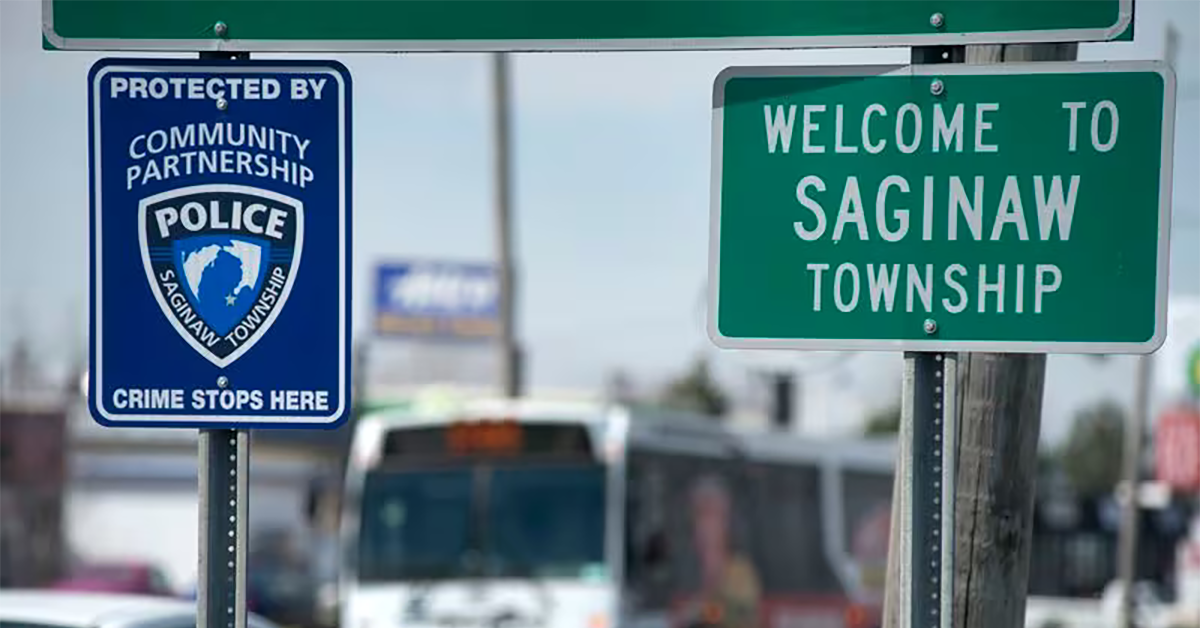
Two young adults found themselves in custody after a peculiar incident in a bustling Saginaw Township intersection on Sunday evening.
At approximately 7:20 p.m. on January 7th, Saginaw Township Police were summoned to the crossroads of North Center Road and Weiss Street. A concerned citizen had dialed 911 upon noticing a 2006 Chevrolet Malibu stationary in the intersection, with its two occupants appearing to be asleep, reported Police Sergeant Chad Brooks.
Upon arrival, officers observed through the windows of the Malibu that the two men inside were indeed sleeping. Notably, the car was in a running state, positioned in drive, but was stationary due to the driver's foot on the brake pedal.
The police attempted to rouse the individuals by knocking on the window. This action woke the sleepy duo, who then attempted to drive off. However, quick intervention by an officer, who reached inside to turn off the ignition and retrieve the keys, prevented their departure.
Sergeant Brooks noted that as the men were being removed from the vehicle, a strong scent of marijuana emanated from the car.
In response to the situation, the Michigan State Police Impaired Driving Action Team (IMPACT) also arrived at the scene. The driver of the Malibu was subsequently arrested for operating a motor vehicle under the influence. The passenger, meanwhile, was detained due to an existing arrest warrant.


 Helpful Links
Helpful Links